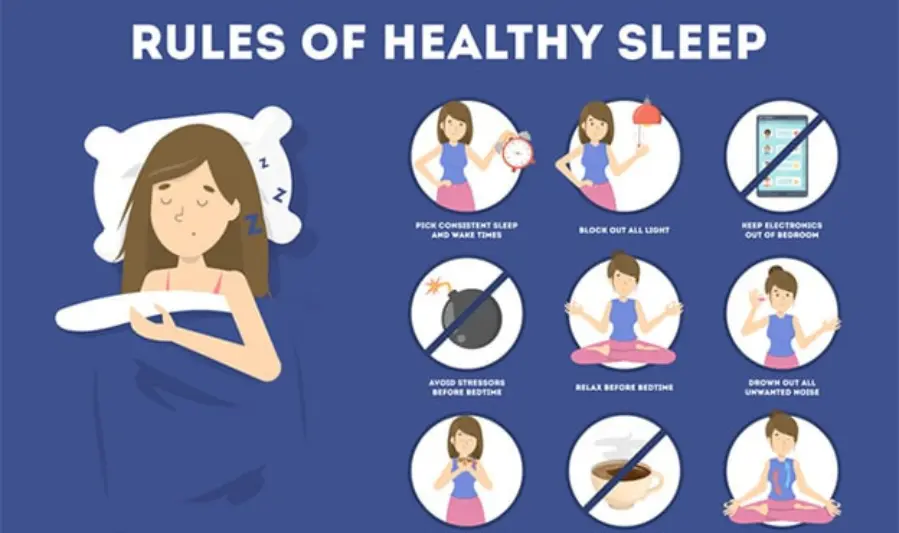Introduction
Meaning of a Healthy Morning Routine
A healthy morning routine is a set of simple habits practiced at the start of the day to support physical, mental, and emotional well-being. It includes activities that energize your body, clear your mind, and prepare you for a productive day. A morning routine doesn’t have to be complicated—small, consistent actions can make a noticeable difference in how you feel and perform.
Core Elements of a Healthy Routine
- Hydration
- Light movement or stretching
- Mindfulness or quiet reflection
- Nutritious breakfast
- Positive mindset practices
How Morning Habits Influence the Rest of the Day

Your morning habits create the foundation for your entire day. When you begin your morning with intention and healthy practices, you set a positive tone that carries into your mood, energy levels, and productivity. Good morning habits reduce stress, improve focus, and help you stay organized and motivated.
Impact of Morning Habits
- Better concentration and mental clarity
- Stable energy throughout the day
- Improved emotional balance
- Reduced overwhelm and stress
- Higher productivity and better decision-making
Importance of a Morning Routine
2.1 Boosts Energy and Productivity
A structured morning routine helps kickstart your day with purpose and energy. When you begin your morning with healthy habits, you wake up your body and mind, allowing you to approach tasks with greater enthusiasm and efficiency.
How It Helps
- Improves focus: Morning routines reduce distractions and help you concentrate better throughout the day.
- Helps start the day with clarity: Consistent habits like planning, journaling, or simply organizing your thoughts create a clear direction and reduce decision fatigue.
2.2 Supports Physical Health
Morning routines often include activities that get the body moving and promote better physical function. Even light movement can activate your muscles and prepare your body for the day ahead.
Physical Benefits
- Activates muscles: Stretching or walking in the morning improves blood flow and flexibility.
- Enhances metabolism: Drinking water, eating a nutritious breakfast, or doing light exercise helps jumpstart your metabolism, supporting healthier digestion and energy levels.
2.3 Improves Mental Well-Being
A calm and intentional morning helps create emotional stability. Taking a few minutes for self-care, mindfulness, or breathing exercises reduces stress and helps you feel more grounded.
Mental Health Benefits
- Reduces stress: Starting your day peacefully prevents mental overload and lowers anxiety levels.
- Promotes emotional balance: Mindful practices help stabilize your mood, making it easier to handle challenges throughout the day.
Wake Up Early and Calmly

3.1 Benefits of Waking Up Early
Waking up early gives you a head start on the day and allows you to move at a comfortable pace without rushing. It provides extra time for self-care, planning, and healthy habits that set a positive tone for the entire day.
Why Waking Up Early Helps
- Creates a peaceful, stress-free start
- Gives more time for morning routines
- Improves productivity and focus
- Enhances mood and emotional balance
- Helps regulate your sleep cycle
3.2 Avoiding Phone Usage First Thing in the Morning
Using your phone right after waking up can overwhelm your mind with notifications, messages, and social media. This harms focus, increases stress, and distracts you from starting your day intentionally.
Healthy Alternatives
- Drink a glass of water
- Stretch lightly
- Open your window for fresh air
- Sit quietly or set your goals for the day
3.3 Beginning the Day with Slow Breathing or Quiet Time
Starting your day with calm breathing or silent reflection prepares your mind for a peaceful and productive day. This simple practice reduces stress, lowers morning anxiety, and improves mental clarity.
Ways to Start Calmly
- Take 5 deep breaths
- Sit quietly for 2–3 minutes
- Practice short mindfulness
- Repeat a positive affirmation
Morning Hydration
4.1 Why Water Is Essential After Waking Up
After several hours of sleep, your body becomes naturally dehydrated. Drinking water first thing in the morning helps rehydrate your system and supports essential bodily functions. It also activates your organs and prepares your body for the day ahead.
Key Reasons to Drink Water Early
- Replenishes lost fluids
- Supports digestion
- Helps flush out toxins
- Improves brain function and alertness
4.2 Benefits of Lemon Water
Lemon water is a simple and refreshing way to enhance your hydration routine. Packed with vitamin C and antioxidants, it supports immune health and improves digestion.
Why Lemon Water Is Helpful
- Aids digestion and reduces bloating
- Boosts immunity
- Provides gentle detoxing effects
- Freshens breath and hydrates at the same time
4.3 How Hydration Boosts Energy and Metabolism
Proper hydration improves metabolism by supporting the body’s ability to convert food into energy. Even mild dehydration can lead to tiredness and reduced focus, making morning hydration important for daily performance.
Hydration Benefits for the Body
- Increases overall energy levels
- Enhances metabolic rate
- Improves nutrient absorption
- Reduces fatigue and morning sluggishness
Light Exercise and Stretching
5.1 Stretching to Loosen Muscles
Stretching in the morning helps wake up your body by improving blood circulation and reducing stiffness caused by sleep. It prepares your muscles and joints for the day, preventing discomfort and boosting flexibility.
Benefits of Morning Stretching
- Reduces muscle tightness
- Increases flexibility
- Improves posture
- Enhances circulation and mobility
5.2 Simple 10-Minute Exercises
Even a short 10-minute routine can energize your body and improve physical strength. These quick exercises are easy to do at home and require no equipment.
Easy 10-Minute Workout Ideas
- 20 squats
- 15–20 wall push-ups or knee push-ups
- 30 seconds of plank
- Light jogging or marching in place
- Arm circles and shoulder rolls
5.3 Yoga or Walking for Beginners
Yoga and walking are gentle yet effective forms of morning exercise, especially for beginners. They help relax the mind, strengthen the body, and improve overall balance.
Beginner-Friendly Options
- 5–10 minutes of basic yoga poses (child’s pose, cat-cow, downward dog)
- A short morning walk around your home or outdoors
- Slow-paced stretching combined with deep breathing
- Simple balance poses like tree pose
Nutritious Breakfast
6.1 Importance of a Balanced Breakfast
A balanced breakfast fuels your body after long hours of sleep and provides the energy needed to start your day. Eating a nutritious meal in the morning helps regulate blood sugar, supports better concentration, and keeps hunger under control throughout the day.
Why Breakfast Matters
- Boosts morning energy levels
- Improves focus and productivity
- Supports healthy metabolism
- Prevents overeating later in the day
6.2 Healthy Breakfast Ideas
Choosing simple, nutritious foods can make your mornings easier and healthier. Aim for meals that include a balance of protein, healthy fats, and complex carbohydrates.
Easy and Nutritious Options
- Oatmeal topped with fruits and nuts
- Greek yogurt with seeds and honey
- Eggs with whole-grain toast
- Smoothies with spinach, banana, and yogurt
- Peanut butter on whole-wheat bread
- Fruit bowls paired with nuts or boiled eggs
6.3 Foods That Improve Mood and Energy
Some foods naturally boost mood and stabilize energy levels. Including them in your breakfast can help you feel more positive, alert, and refreshed throughout the morning.
Mood-Boosting Breakfast Foods
- Bananas (natural energy + mood balance)
- Berries (rich in antioxidants)
- Eggs (protein for sustained energy)
- Nuts and seeds (healthy fats for brain function)
- Whole grains (steady energy release)
- Dark chocolate in moderation (enhances mood)
Mindfulness and Mental Wellness
7.1 Deep Breathing Exercises
Starting your morning with deep breathing helps calm the nervous system and improves oxygen flow in the body. Simple techniques like inhaling for four seconds, holding for four, and exhaling for four can boost focus and reduce stress instantly.
7.2 Meditation or Prayer
A few minutes of meditation or prayer in the morning centers your mind and sets a peaceful tone for the day. It helps clear mental clutter, enhances self-awareness, and improves emotional stability.
7.3 Gratitude Journaling
Writing down three things you’re grateful for encourages a positive mindset. This practice shifts your focus toward the good in your life, reduces negativity, and elevates your overall mood.
7.4 Setting Positive Intentions
Setting clear intentions helps guide your actions throughout the day. Whether it’s staying calm, being productive, or practicing kindness, these small mental commitments support a more focused and meaningful day.
you may also like to read these posts:
Discover the Beauty of Indonesian Traditional Fashion Styles
Learn Java Easily Online with Simple Coding Examples
Easy Core Java Tutorials for Beginners to Start Coding
Beginner-Friendly Home Workouts: Simple Routines to Get Started
Day Planning
8.1 Writing Top Priorities
Start your morning by listing the top three tasks that truly matter for the day. Focusing on priorities helps you stay organized, manage time better, and avoid feeling overwhelmed by too many responsibilities.
8.2 Creating Realistic Goals
Set goals that are achievable and aligned with your available time and energy. Breaking big tasks into smaller steps makes your day more manageable and increases the chances of completing everything successfully.
8.3 Benefits of Morning Planning for Stress Reduction
Planning your day early helps you stay ahead instead of reacting to chaos. It reduces stress by giving you structure, clarity, and confidence. When you know exactly what needs to be done, you can move through your day with a calm and focused mind.
Personal Hygiene and Self-C Care
9.1 Basic Hygiene Practices
Maintaining daily hygiene keeps you healthy, fresh, and confident. Simple habits like brushing your teeth twice a day, showering regularly, washing your hands often, and keeping your surroundings clean help prevent illness and improve your overall well-being.
9.2 Simple Skincare Routine
A basic skincare routine doesn’t have to be complicated. Start with cleansing your face, followed by a gentle moisturizer and sunscreen during the day. These simple steps protect your skin, keep it hydrated, and help you maintain a glowing, healthy appearance.
9.3 Dressing Comfortably for Confidence
Wearing clean, comfortable clothes boosts your confidence and sets a positive tone for the day. Choose outfits that suit the weather, fit well, and make you feel good. When you’re comfortable, you naturally feel more productive and relaxed.
Consistency and Habit Building
10.1 How to Build a Sustainable Morning Routine
A sustainable morning routine is one that fits your lifestyle and can be followed daily without stress. Focus on choosing habits that support your goals, feel realistic with your schedule, and bring value to your day. Sustainability comes from creating a routine you enjoy, not one that feels forced.
10.2 Starting Small and Adding Habits Gradually
The key to success is starting with one or two simple habits instead of overloading your morning. Gradually add new habits once the earlier ones become natural. Small steps—like drinking water first thing in the morning or doing a 5-minute stretch—build momentum and lead to long-term consistency.
10.3 Tracking Progress to Stay Motivated
Tracking your routine helps you stay motivated and aware of your progress. You can use a journal, mobile app, or simple checklist to mark daily habits. Seeing your improvements—even small ones—boosts confidence and encourages you to keep moving forward.
Faqs:
Why is a morning routine important for a healthy lifestyle?
A morning routine sets the tone for your entire day. It helps improve energy, focus, productivity, and overall physical and mental well-being.
What time should I wake up for a healthy morning routine?
There is no fixed time, but waking up early enough to avoid rushing and complete your morning habits calmly is ideal for better health.
What should I eat for a healthy morning breakfast?
A balanced breakfast includes protein (eggs, yogurt), whole grains (oats, brown bread), and fruits for vitamins and energy.
How can I stay consistent with a morning routine?
Start with simple habits, build slowly, and stick to a regular sleep schedule. Tracking your routine also helps maintain consistency.
Do I need to exercise every morning?
You don’t need a long workout. Even 10 minutes of stretching, walking, or light exercise in the morning can boost energy and support a healthy lifestyle.
Conclusion
Building a morning routine for a healthy lifestyle doesn’t require big changes—small, consistent habits can create a powerful impact on your physical and mental well-being. By starting your day with hydration, movement, mindfulness, and a nourishing breakfast, you set a positive tone that carries through the rest of your day. Focus on what works best for you, stay consistent, and make gradual improvements. Over time, these simple morning habits will help you feel more energized, balanced, and healthier overall.




